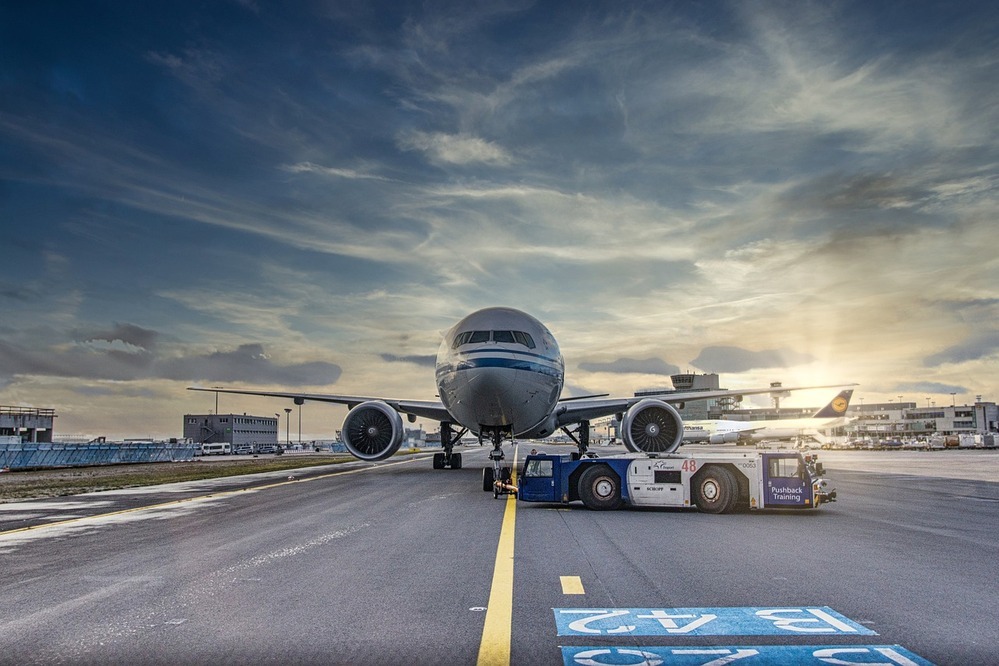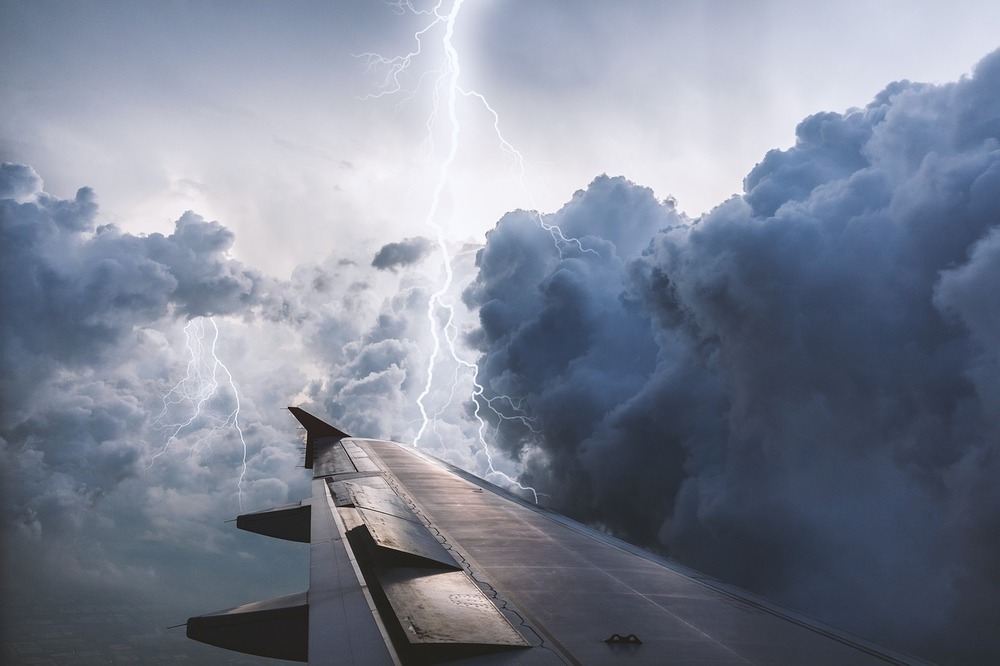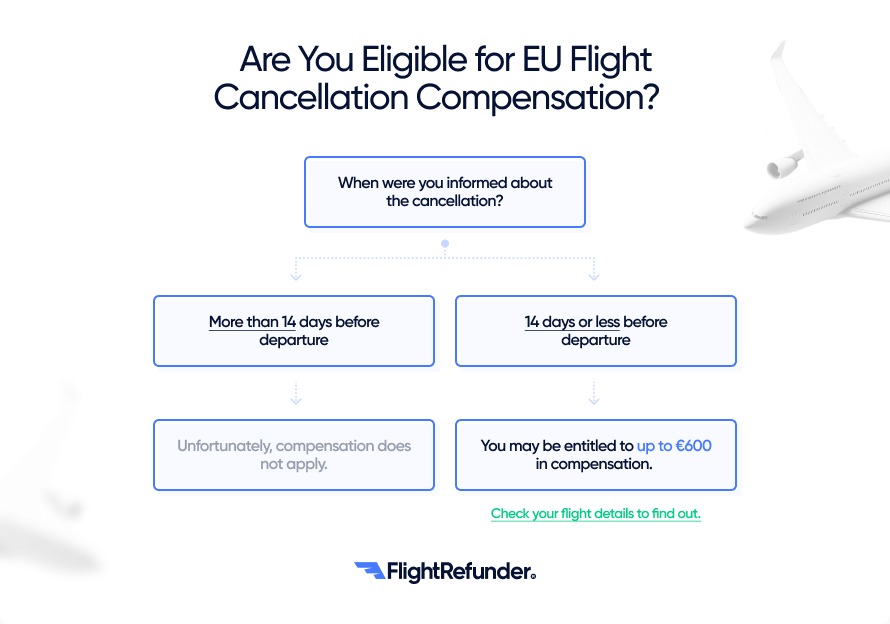Picture this: you’re at the airport, coffee in hand, your eyes fixed on the departure board, only to see your flight status switch from “On Time” to “Cancelled.” It’s a scenario every traveler dreads, but it’s more common than you might think—millions of flights are canceled every year for reasons that go far beyond weather. Why does this happen? From safety issues and technical glitches to unexpected weather and operational hiccups, the reasons for flight cancellations are as varied as they are frustrating. By understanding why flights get cancelled, you can navigate the chaos with greater clarity and maybe even turn a stressful situation into a manageable one.

Why do Airlines Cancel Flights?
So, let us dig into the most common causes of flight cancellations, so that the next time you find yourself here wondering, “Why are there so many flight cancellations?”, you’ll have the answers to the test ready on hand.
Dangerous Weather

Debating the reason for the loss of my flight, the weather reigns as the ultimate cause. Severe meteorological phenomena like thunderstorms, hurricanes, blizzards, fog, or winds can considerably hinder safe flight operations. These negatives can reduce visibility, alter landing conditions, or affect the aircraft’s ability to navigate. Thunderstorms, in particular, can disrupt flights, often leading to delays or cancellations due to safety concerns. For more on how thunderstorms specifically impact flight schedules, check Do Flights Get Canceled Due to Thunderstorms?.
Cancellation of flights at the booking step is not just about inconvenience but also about a responsibility to safety. As a result, such weather-related challenges lead airlines to cancel flights, which is not a decision made lightly.
TIP: If bad weather is forecasted, sign up for airline notifications and check your flight status at least 24 hours before departure.
Air Traffic Control (ATC) Restrictions
Another critical factor behind the question “Why are airlines cancelling flights?” involves Air Traffic Control (ATC) restrictions. The ATC plays an important role in managing the flow of aircraft in the skies, ensuring that air traffic is balanced and safe. However, in order to efficiently manage airspace, ATC must occasionally apply limits. These can include changing flight itineraries, departure timings, or, in certain cases, canceling flights entirely. These judgments are taken in the interest of safety.
Mechanical Issues
Mechanical issues with aircraft are a significant reason why airlines cancel flights. These concerns might range from trivial to serious, necessitating the cancellation of a flight. Controlled cancellations occur when an airline detects a potential technical issue during routine inspections or maintenance, such as a power outage or engine malfunction. These proactive actions are being implemented to protect passenger safety. Sometimes, these cancellations are also triggered by external factors, like an air traffic control system failure or a cyberattack, highlighting the myriad of reasons flights get cancelled. In such instances, it’s essential to be aware of your rights to claim compensation for a canceled flight, ensuring that you’re not left to shoulder the inconvenience and cost alone.
Technical Problems
Apart from mechanical issues, technical problems also play a pivotal role in why flights get cancelled. Unlike mechanical failures which deal with physical components of an aircraft, technical issues usually involve software problems or failures in the computer systems that airlines rely on to fly. For instance, a notable FAA computer system malfunction in January 2023 grounded flights nationwide, serving as a prime example of what causes a flight to be cancelled. Technical disruptions can affect scheduling systems, communication technologies, and other critical operational tools, leading to cancellations. Understanding both why flights are delayed and why they are cancelled offers a more comprehensive view of the complexities behind air travel disruptions.
Security Issues
Safety and security are paramount in the aviation business, driving the operations of airlines and regulatory authorities around the world. To protect passengers and personnel, strict security procedures are in place, ranging from passenger screening to baggage checks. However, these necessary safeguards sometimes result in flight cancellations. Enhanced security checks, particularly in reaction to specific threats or during periods of increased security warnings, are a leading cause of such disruptions. While this emphasis on security can be irritating at times, it represents the industry’s dedication to guaranteeing airline safety.
Staffing Shortages
The smooth operation of flights highly depends on the availability of skilled personnel, including pilots, flight attendants, ground crew, and maintenance staff. That leaves airlines fighting to keep just enough heads on standby to fulfil operational needs. But shortages in personnel can and do occur due to last-minute illness, scheduling issues, or broader labour problems. If an airline cannot staff a flight with enough crew, it sometimes has to cancel the flight. And although disruptive, this decision is made to maintain safety standards and operational integrity — emphasizing how critical staffing is to the aviation industry.
TIP: Book early morning flights whenever possible- staffing-related cancellations are more common later in the day.
Strikes
Flights can be severely disrupted due to labour disputes when key personnel at airlines, like pilots, flight attendants, and ground crew, are involved. Airline strikes interrupt the normal flow of operations, which can lead airlines to cancel flights because they can’t get the people they need to safely and efficiently run operations. This often occurs after direct conflicts between airline management and employees remain unresolved. It’s a sobering reminder of the human element behind air travel and its vulnerability to industrial relations troubles.
Government Regulations or Restrictions
The next major reason why airlines are cancelling flights is linked to government regulations or restrictions. This highlights how political unrest, health crises, or other events, such as government-imposed travel bans or airspace restrictions, can directly affect flight operations in an adverse way. Such measures, aimed at preserving public health and safety, can result in flight cancellations and changes across the board.
This is just another layer of complexity in the many reasons cancellations may occur and an example of how external forces can be an airline’s worst nightmare when needing to cancel a flight. And so, regulations like these cause travelers to wonder, “Why are flights getting cancelled?”
Lack of Passengers
A surprisingly pragmatic reason why flights get cancelled stems from a lack of passengers. Airlines, navigating the delicate balance between operational costs and profitability, sometimes face situations where the demand for a particular flight doesn’t justify the expense of operating it. Seasonal fluctuations and economic conditions significantly influence passenger numbers, leading to decisions in which the airline cancels the flight to optimize resources and maintain financial health.
Bird Strikes
Another cause of flight disruptions that can seem both natural and random is bird strikes. It may seem implausible for birds to actually threaten an airplane, but this is a serious issue that the aviation industry deals with regularly. Bird strikes most commonly happen during takeoff, landing, or when the aircraft is in the air, and they can cause serious damage to the nose, windshield, or engines of an aircraft.
Bird strikes can require significant inspection and maintenance and, in such cases, delays may be encountered — and cancellations may occur if no substitute is available. This is one of many reasons for flight cancellations, demonstrating the unexpected obstacles airlines face in order to maintain both safety and service availability.
What Happens if a Flight Is Canceled?
When a flight is canceled, a series of well-structured steps are promptly initiated by the airline to manage the situation and assist passengers. Here’s what typically happens:
- 📢 Notification: The airline promptly informs the affected passengers about the cancellation. This is done through various communication channels such as email, SMS, phone calls, the airline’s website, or their mobile app.
- ✈️ Rebooking: Efforts are made to find another available flight to get passengers to their intended destination. The airline works to minimize delays and ensure passengers are accommodated on the next best available flight.
- 💰 Compensation or Refund: Depending on the circumstances surrounding the cancellation and the policies of the airline, passengers might be eligible for compensation or a full refund. The specifics can vary based on the reason for the cancellation and local or international regulations.
- 🤝 Assistance: The airline offers and provides necessary assistance to make the process as smooth as possible. This includes rebooking on alternate flights, arranging for accommodations if needed, and providing guidance and support through the process.
- 🔄 Updates: Passengers are kept informed about alternative arrangements or any updates to the schedule. The airline ensures that passengers receive the latest information to help them adjust their travel plans accordingly.
This structured approach aims to alleviate the inconvenience caused by the cancellation, reflecting the airline’s commitment to passenger care and satisfaction amidst disruptions.
What are Your Rights If the Flight Was Cancelled
If you discover that your flight has been cancelled, it’s important to understand that you have rights that are protected by law. These rights help protect passengers in case of cancellations, especially those not caused by circumstances beyond the airline’s control, like weather events, but ones that the airline can manage, such as mechanical issues or inadequate crew staffing.
Passengers are usually entitled to compensation in such situations. Such compensation is meant to address the inconvenience and can occur in different ways. You could be reimbursed for the entire cost of your cancelled flight, for example, or the airline might book you alternative transportation to reach your destination. The specifics of these entitlements vary, but the underlying principle is the same: passengers should not suffer the inconvenience of cancellations alone.

Conclusion
Flight cancellations may be disruptive, but they don’t leave passengers stranded. Knowing why flights get cancelled and what rights you have can go a long way towards easing the inconvenience. Depending on the reason for the cancellation, airlines are required to provide compensation, care, and assistance. With this knowledge in hand, you can navigate the frustration of cancelled flights with clarity, ensuring your travel rights are honoured.
